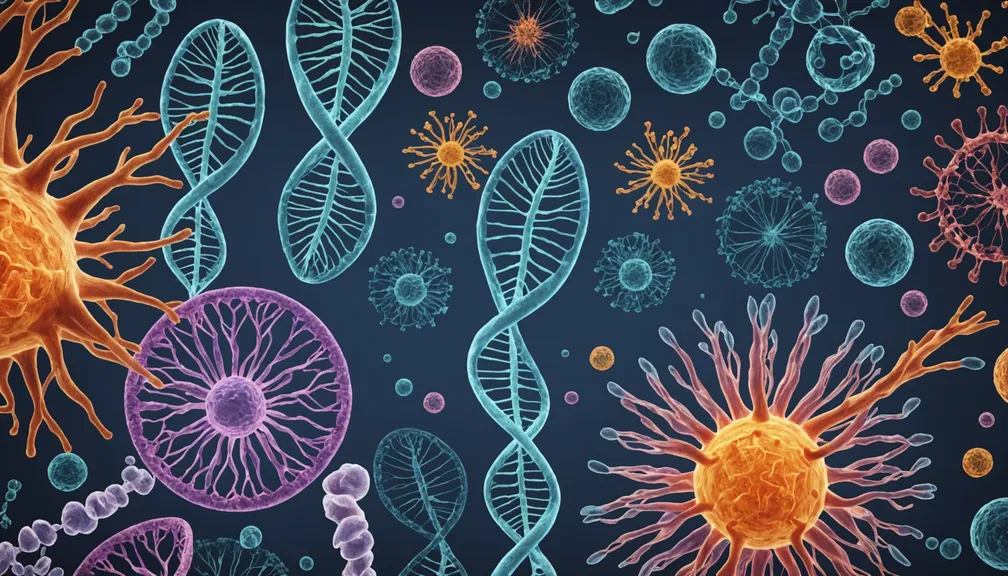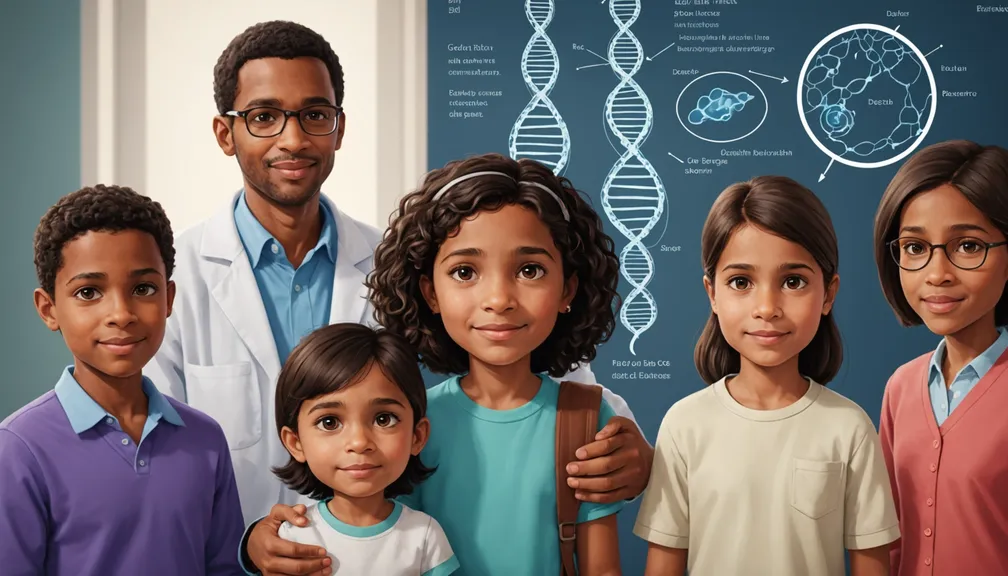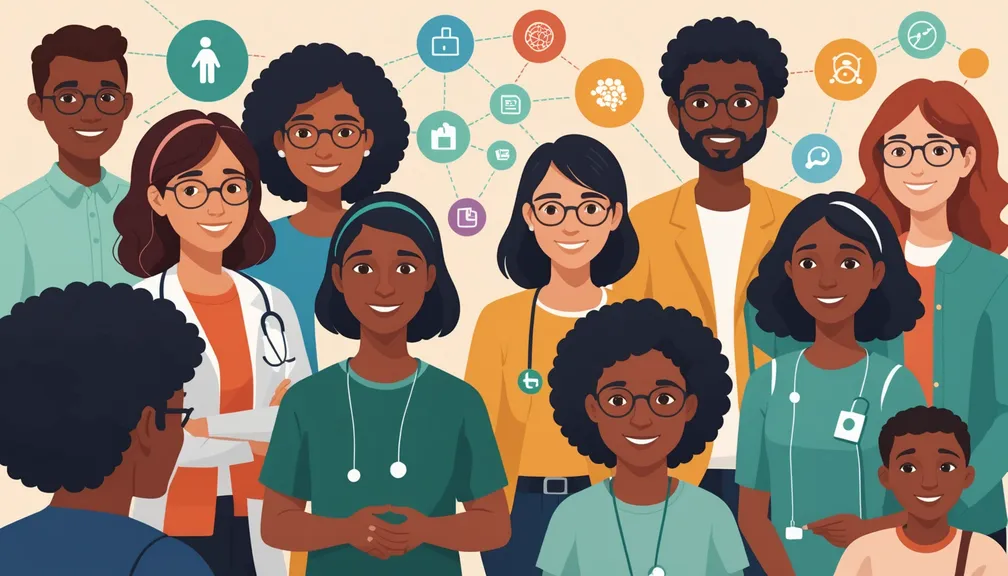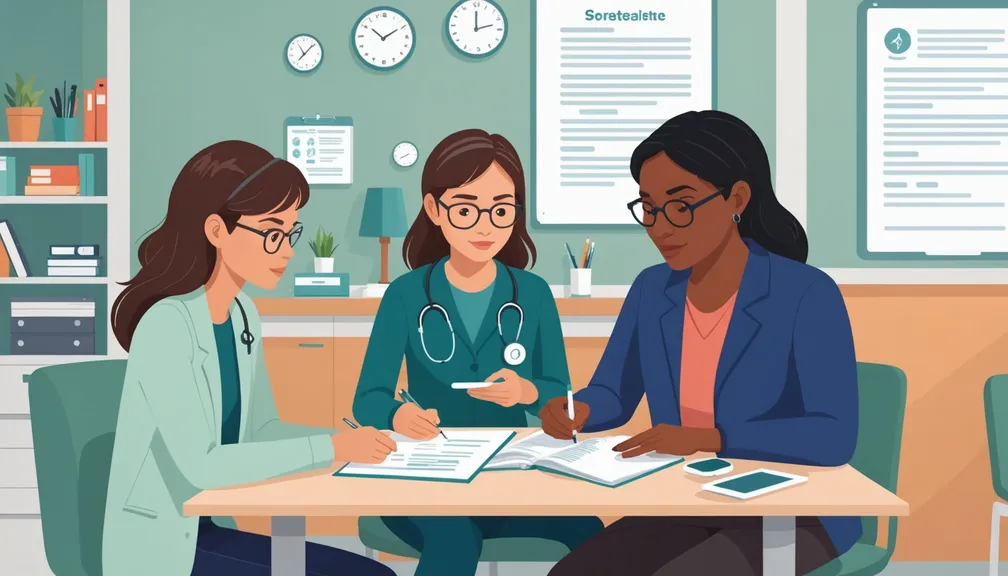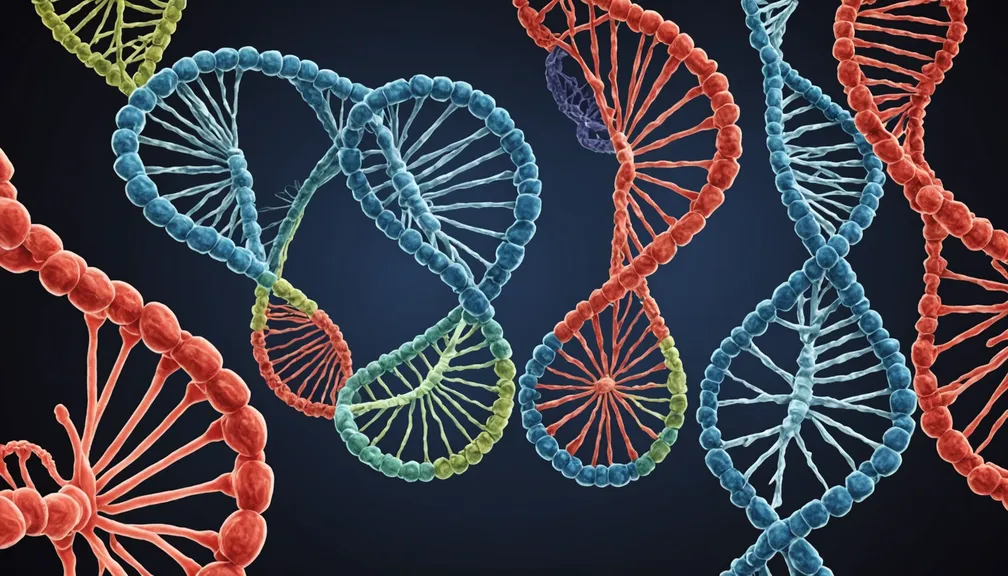How Genetic Mutations Cause Disease
Genetic rare diseases arise from changes in an individual's DNA, leading to a variety of health challenges. Understanding how these genetic mutations cause disease can empower patients and their families to seek appropriate care and support.
1. Understanding Genetic Mutations
What is DNA?
DNA, or deoxyribonucleic acid, is the blueprint of life. It contains the instructions needed for an organism to develop, function, and reproduce. These instructions are organized into segments called genes, each responsible for specific traits and functions in the body.
Genes and Their Functions
Genes are segments of DNA that code for proteins, which perform essential tasks in cells. Proteins are vital for building structures, regulating processes, and enabling communication within and between cells.
What are Genetic Mutations?
Genetic mutations are changes or alterations in the DNA sequence. These mutations can occur in various ways and may affect how genes function.
-
Single-Gene Mutations: Changes in a single gene. These are often responsible for monogenic diseases, where one mutated gene causes the disorder.
-
Chromosomal Rearrangements: Larger structural changes in chromosomes, such as deletions, duplications, or translocations, affecting multiple genes.
Types of Genetic Mutations
- Point Mutations: A single nucleotide change in the DNA sequence.
- Insertions and Deletions: Addition or loss of DNA segments, which can disrupt gene function.
- Copy Number Variations: Changes in the number of copies of a particular gene.
- Structural Variations: Large-scale changes affecting chromosome structure and gene organization.
2. How Genetic Mutations Lead to Disease
Disruption of Gene Function
Mutations can alter how a gene functions in several ways:
- Loss of Function: The gene fails to produce a functional protein.
- Gain of Function: The gene produces a protein with new or enhanced activity.
- Dominant-Negative Effects: The mutated gene product interferes with the function of the normal protein.
Impact on Proteins
Proteins are essential for nearly every cellular process. When mutations disrupt protein function, it can lead to:
- Enzymatic Deficiencies: Reduced or absent enzyme activity affects metabolic pathways.
- Structural Abnormalities: Faulty proteins compromise cell structure and tissue integrity.
- Signal Transduction Issues: Impaired communication between cells affects growth and immune responses.
Systemic Effects
Depending on which gene is mutated and the role of its protein product, genetic mutations can affect any body system, including:
- Nervous System: Leading to neurological disorders.
- Cardiovascular System: Causing heart defects or vascular diseases.
- Musculoskeletal System: Resulting in bone and muscle abnormalities.
- Immune System: Compromising the body’s ability to fight infections.
3. Inheritance of Genetic Diseases
Inherited vs. De Novo Mutations
- Inherited Mutations: Passed down from one or both parents. These can follow specific patterns of inheritance.
- De Novo Mutations: Occur spontaneously in an individual with no family history of the disease.
Patterns of Inheritance
Understanding how a genetic disease is inherited helps assess the risk for family members.
- Autosomal Dominant:
- Only one copy of the mutated gene is needed to cause the disease.
-
Affected individuals have a 50% chance of passing the mutation to each child.
-
Autosomal Recessive:
- Two copies of the mutated gene are required to manifest the disease.
-
Parents are usually carriers with one mutated gene each, having a 25% chance of having an affected child.
-
X-Linked:
- Mutations occur on the X chromosome.
-
More common in males, as they have only one X chromosome.
-
Mitochondrial Inheritance:
- Mutations in mitochondrial DNA are passed from mothers to all their children.
4. When Symptoms Appear
Early-Life Manifestations
Many genetic diseases present symptoms shortly after birth or during childhood, including:
- Developmental delays
- Physical malformations
- Metabolic issues
Adult-Onset Conditions
Some genetic disorders may not become apparent until adulthood, such as:
- Certain forms of muscular dystrophy
- Hereditary cancers
- Neurodegenerative diseases
Understanding the timeline of symptom development aids in early diagnosis and management.
5. Diagnosing Genetic Diseases
Genetic Testing
Genetic testing analyzes an individual's DNA to identify mutations. Types of tests include:
- Diagnostic Testing: Confirms a specific genetic condition based on symptoms.
- Carrier Testing: Determines if an individual carries a mutated gene without showing symptoms.
- Predictive and Pre-symptomatic Testing: Assesses the risk of developing a genetic disease before symptoms appear.
- Prenatal Testing: Detects genetic abnormalities in a fetus.
Clinical Assessments
In addition to genetic testing, healthcare providers use:
- Physical Examinations: Identifying physical signs and symptoms.
- Family History Analysis: Understanding inheritance patterns.
- Imaging and Laboratory Tests: Assessing organ function and detecting abnormalities.
6. Managing Genetic Diseases
Treatment Options
While many genetic diseases currently have no cure, management strategies focus on:
- Symptomatic Treatment: Alleviating symptoms through medications or therapies.
- Enzyme Replacement Therapy: Providing the missing or deficient enzymes.
- Gene Therapy: Introducing correct copies of genes to restore function (still under research for many conditions).
- Surgical Interventions: Correcting physical abnormalities when possible.
Support and Resources
Access to support services enhances quality of life:
- Physical Therapy: Improves mobility and strength.
- Occupational Therapy: Assists with daily activities and adaptive equipment.
- Speech Therapy: Helps with communication challenges.
7. Supporting Patients and Families
Genetic Counseling
Genetic counselors provide:
- Risk Assessment: Evaluating the likelihood of inheriting or passing on a genetic disease.
- Education: Explaining the disease, inheritance patterns, and testing options.
- Support: Assisting with emotional and psychological challenges related to genetic conditions.
Psychological Support
Living with a genetic disease can be emotionally taxing. Support options include:
- Counseling Services: Individual or family therapy.
- Support Groups: Connecting with others facing similar challenges.
- Mental Health Professionals: Providing strategies to cope with stress, anxiety, and depression.
8. Healthcare Professionals Who Can Help
Managing genetic rare diseases often involves a multidisciplinary team:
- Geneticists: Specialists in genetics who diagnose and manage genetic conditions.
- Genetic Counselors: Provide information and support regarding genetic disorders.
- Primary Care Physicians: Coordinate overall care and refer to specialists as needed.
- Specialists (e.g., Neurologists, Cardiologists, Endocrinologists): Address specific organ system issues related to the genetic disease.
- Physical and Occupational Therapists: Aid in maintaining mobility and independence.
- Psychologists and Social Workers: Offer emotional support and assist with accessing resources.
Understanding how genetic mutations cause disease is a crucial step toward effective management and support. By working closely with healthcare professionals and utilizing available resources, patients and their families can navigate the challenges of genetic rare diseases with greater confidence and resilience.


